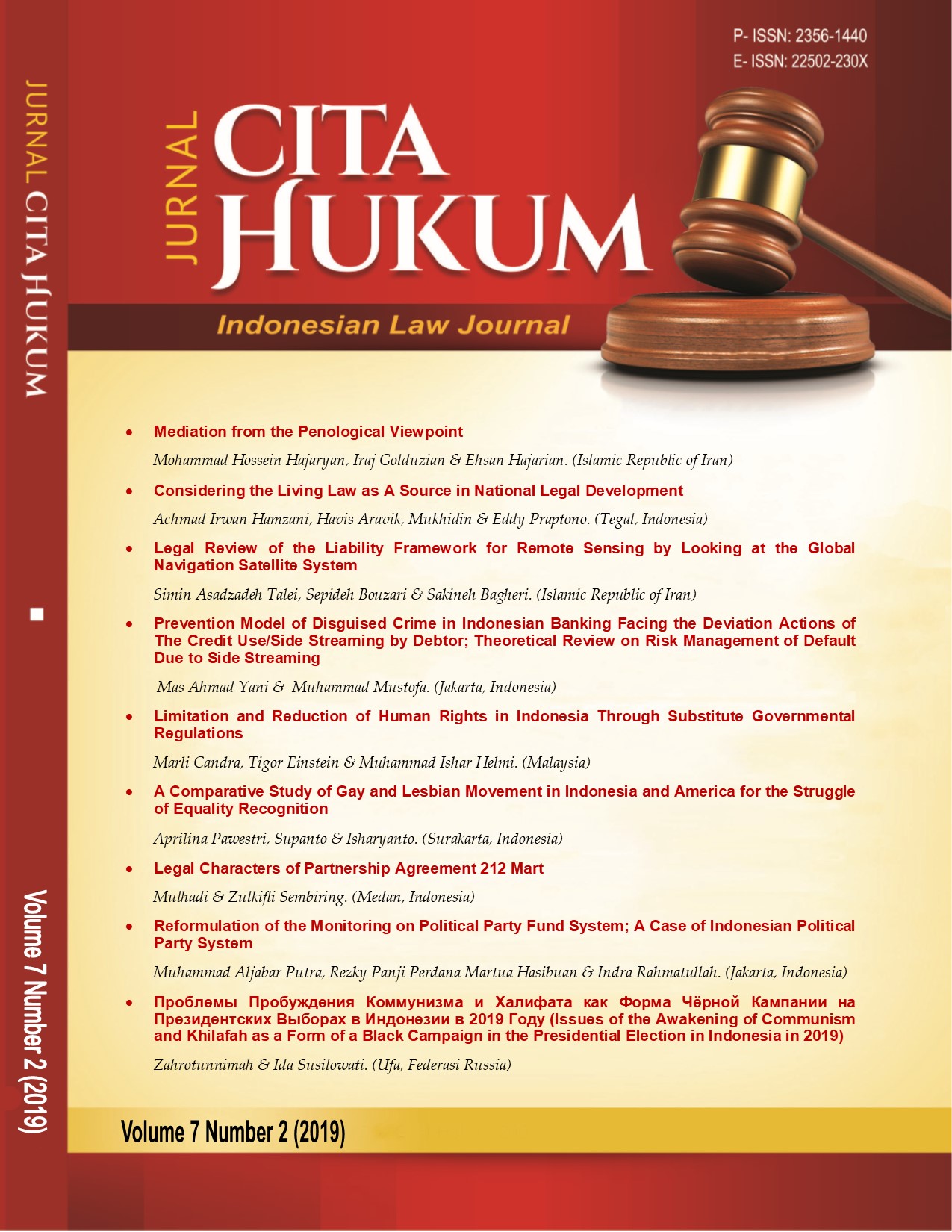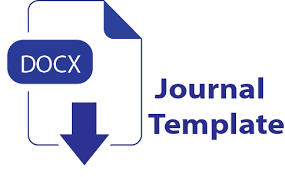Protection of Human Rights: Participation of European International Organisations in Regulating the Functioning of Artificial Intelligence (AI) Technologies
DOI:
https://doi.org/10.15408/jch.v13i1.44685Keywords:
Artificial Intelligence, Human Rights, International Law, European Union, Council of EuropeAbstract
The authors of this article explore the potential solutions to the issue of threats to human rights arising from the development of artificial intelligence (AI) technologies. The research problem is examined within the framework of international law, focusing particularly on adopting relevant legal instruments at the global or supranational level, especially within the European Union (EU) and the Council of Europe. This study employs a qualitative research method, using a literature-based and legal approach to review and analyse existing regulations systematically, scholarly discussions, and legislative initiatives. Additionally, the case-study method is utilized to examine key legislative instruments adopted within the EU that regulate the use of AI in the context of human rights protection. Through this approach, the article highlights the similarities and differences between the compared legal acts, particularly concerning the threats posed by AI technologies and their projected future significance. The findings indicate that the analysed legal instruments are vital for safeguarding individuals' rights against risks emerging from the rapid development of AI. Furthermore, the authors conclude that the effective and practical implementation of these regulations at the national level in EU member states will play a critical role in shaping similar legal frameworks within the broader sphere of international law.
References
Begishev, I. R., Latypova, E. Y., & Kirpichnikov, D. V. (2020). Artificial intelligence as a legal category: Doctrinal approach to the development of its definition. Current Issues in Economics and Law, (14), 79–91.
Bogoviz, A. V. (2020). Perspective directions of state regulation of competition between human and artificial intellectual capital in Industry 4.0. Journal of Intellectual Capital, 21(4), 583–600.
Cataleta, M. S., & Cataleta, A. (2020). Artificial intelligence and human rights, an unequal struggle. CIFILE Journal of International Law, 1(2), 40–63.
Chatterjee, S., & Sreenivasulu, N. S. (2021). Artificial intelligence and human rights: A comprehensive study from the Indian legal and policy perspective. International Journal of Law and Management, 64(1), 110–134.
Chatterjee, S., & Sreenivasulu, N. S. (2022). Evolution of artificial intelligence and its impact on human rights: From a sociolegal perspective. International Journal of Law and Management, 64(2), 184–205.
Council of Europe Framework Convention on Artificial Intelligence and Human Rights, Democracy and the Rule of Law. (2024). https://rm.coe.int/1680afae3c
European Parliament resolution of 20 October 2020 on intellectual property rights for the development of artificial intelligence technologies (2020/2015(INI)). https://www.europarl.europa.eu/doceo/document/TA-9-2020-0277_EN.pdf
European Parliament resolution of 20 October 2020 with recommendations to the Commission on a framework of ethical aspects of artificial intelligence, robotics, and related technologies (2020/2012(INL)). https://www.europarl.europa.eu/doceo/document/TA-9-2020-0275_EN.pdf
European Parliament resolution of 20 October 2020 with recommendations to the Commission on a civil liability regime for artificial intelligence (2020/2014(INL)). https://www.europarl.europa.eu/doceo/document/TA-9-2020-0276_EN.pdf
Evstratov, A. E., & Guchenkov, I. Y. (2020). Limits of artificial intelligence application (legal problems). Law Enforcement, 4(2), 13–19.
Filipova, I. A. (2024). Legal regulation of artificial intelligence: Experience of China. Journal of Digital Technologies and Law, 2(1), 46–73. https://doi.org/10.21202/jdtl.2024.4
Gallese Nobile, C. (2023). Regulating smart robots and artificial intelligence in the European Union. Journal of Digital Technologies and Law, 1(1), 33–61. https://doi.org/10.21202/jdtl.2023.2
Ilin, I. G. (2024). Personal data in artificial intelligence systems: Natural language processing technology. Journal of Digital Technologies and Law, 2(1), 123–140. https://doi.org/10.21202/jdtl.2024.7
Kartsiya, A. A., & Makarenko, G. I. (2024). Legal horizons of artificial intelligence technologies: National and international aspects. Issues of Cybersecurity, (1), 2–14.
Kartsiya, A. A., Makarenko, G. I., & Makarenko, D. G. (2023). Legal prospects of artificial intelligence technologies. In Safe Information Technologies: Proceedings of the Twelfth International Scientific and Technical Conference of Bauman Moscow State Technical University (pp. 154–161).
Kharitonova, Y. S. (2023). Legal means of providing the principle of transparency of artificial intelligence. Journal of Digital Technologies and Law, 1(2), 337–358. https://doi.org/10.21202/jdtl.2023.14
Khisamova, Z. I., & Begishev, I. R. (2020). The essence of artificial intelligence and the problem of defining legal subjectivity. Bulletin of Moscow State Regional University. Series: Jurisprudence, (2), 96–106.
Khudyakova, E. A. (2020). On the legal status of artificial intelligence. Issues of Russian Justice, (5), 366–373.
Krkac, K. (2019). Corporate social irresponsibility: Humans vs artificial intelligence. Social Responsibility Journal, 15(6), 786–802.
Kubrak, V. (2022). Limitations of the scope of exclusive rights in relation to results created using artificial intelligence technologies. Legal Bulletin, 3(7), 121–129. https://doi.org/10.5281/zenodo.11189432
Laptev, V. A. (2019). The concept of artificial intelligence and legal responsibility for its operation. Law. Journal of the Higher School of Economics, (2), 79–102.
Levit, D. (2024). The legal regime of the results created by artificial intelligence technologies. Legal Bulletin, 2(9), 108–119. https://doi.org/10.5281/zenodo.12683332
Liability Rules for Artificial Intelligence. https://www.europarl.europa.eu/RegData/etudes/BRIE/2023/739342/EPRS_BRI(2023)739342_EN.pdf
Medvedev, A. I. (2022). Legal aspects of artificial intelligence and related technologies. Journal of the Intellectual Property Court, 4(38), 48–63.
Miller, L. F. (2014). Is species integrity a human right? A rights issue emerging from individual liberties with new technologies. Human Rights Review, 15(2), 177–199.
Need for democratic governance of artificial intelligence. Recommendation 2181 (2020). https://pace.coe.int/en/files/28804/html
Ponkina, I. V., & Redkina, A. I. (2018). Artificial intelligence from a legal standpoint. Herald of the Russian University of Friendship of Peoples. Series: Legal Sciences, 22(1), 91–109.
Regulation (EU) 2024/1689 of the European Parliament and of the Council of 13 June 2024 laying down harmonised rules on artificial intelligence and amending Regulations (EC) No 300/2008, (EU) No 167/2013, (EU) No 168/2013, (EU) 2018/858, (EU) 2018/1139 and (EU) 2019/2144 and Directives 2014/90/EU, (EU) 2016/797 and (EU) 2020/1828 (Artificial Intelligence Act). (2024). https://eur-lex.europa.eu/eli/reg/2024/1689/oj
Sarikakis, K., Korbiel, I., & Piassaroli Mantovaneli, W. (2018). Social control and the institutionalization of human rights as an ethical framework for media and ICT corporations. Journal of Information, Communication and Ethics in Society, 16(3), 275–289.
Shchitova, A. A. (2020). The role of law in the use of artificial intelligence in the digital state. Information Law, (2), 35–40.
Sultonova, L., Vasyukov, V., & Kirillova, E. (2023). Concepts of legal personality of artificial intelligence. Lex Humana, 15(3), 283–295. https://seer.ucp.br/seer/index.php/LexHumana/article/view/2596
Szappanos, M. (2023). Artificial Intelligence: Is the European Court of Human Rights Prepared? Acta Humana, 1, 93–110.
Talapina, E. V. (2020). Algorithms and artificial intelligence through the lens of human rights. Journal of Russian Law, (10), 25–39.
Tsukanova, E. Y., & Skopenko, O. R. (2018). Legal aspects of responsibility for harm caused by robots with artificial intelligence. Issues of Russian and International Law, 8(4A), 42–48.
Zhuk, A. (2023). Artificial intelligence impact on the environment: Hidden ecological costs and ethical-legal issues. Journal of Digital Technologies and Law, 1(4), 932–954. https://doi.org/10.21202/jdtl.2023.40











